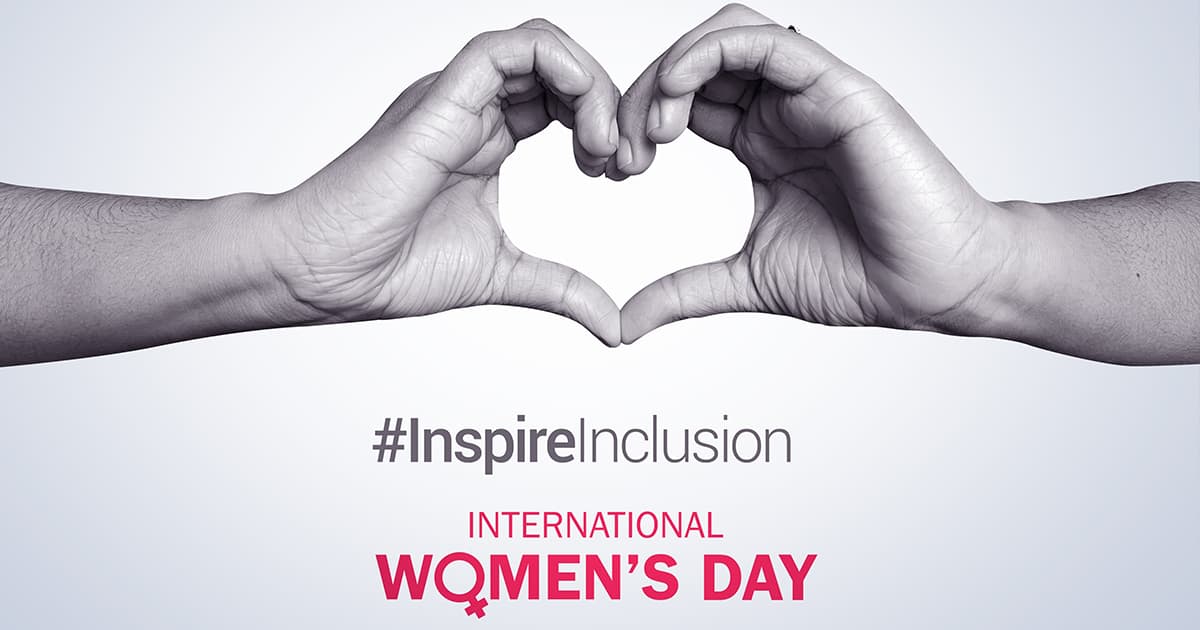Join Us in Celebrating Western's Leaders in AI Policy

In honour of International Women's Day today, we're spotlighting the achievements of two remarkable women at Western Financial Group in the field of artificial intelligence (AI).
Tessa Peterson, Director of Business Intelligence and Analytics, and Ann Holmes Zirk, Director of Cyber Security, Data and IT Compliance are leading Western’s efforts in AI policies for our company's customers and employees that are ethical, transparent, and inclusive.
Education and experience lead to AI

Tessa: I have a Master of Science degree majoring in statistics and computer science. One of my subjects was Artificial Intelligence. AI is a buzzword today but it has existed since the 1950s. We did not have super computers back then to be able to perform the level of calculations we can today. So, I have always had theoretical knowledge and was fortunate enough that throughout my career I had exposure in either building or evaluating machine learning models (which is a type of AI).
I have been at Western for almost a year and have been enjoying collaborating with Ann and the AI committee as we all have a vested interest in making sure that Western can reap the benefits that AI can give, but in an ethical and responsible manner.

Ann: I have a Bachelor of Arts in English. I’ve taken a certificate program at SAIT (Southern Alberta Institute of Technology) on records management, and I also have several cyber security-related certificates. I’ve been at Western for almost 20 years.
My role at Western evolved from various compliance areas in finance and IT. After the High River floods, there was a need for a records management program. I developed and then put the policies in place for it. When this role moved to the risk team under Technology Services, I continued to write policies and standards in response to numerous audit findings. I was happy to work with Tessa and Matt Deacon to develop the policy and standard for Responsible AI because these documents not only guide our users on how to best leverage this new technology securely, but when Western follows standards, it is easier to detect irregular behaviour which might indicate a threat. Before Western, I was a reporter and later an editor at the High River Times. Fact checking and ensuring the right information is available to the right audience was important then and will be as we advance our use cases for AI.
Responsible use of AI at Western
Ann: AI for me is beneficial only if we are using it properly and responsibly. There are many avenues of risk that AI presents along with all the benefits.
So, that's where I come in -- not to limit the benefits that it brings to the business, but to make sure that we're doing it responsibly so that we're not putting our people, customers, and business at risk while we're developing efficiencies for other elements of the business. We are not leaning on AI to replace our people, we are leveraging it to allow them the ability to work smarter, not harder, so they can better serve our customers. Part of caring for our customers is keeping their data secure and maintaining their trust in our people and our technology.
Tessa: There should always be a human in the loop. AI is a tool (a means to an end) much like how we use Excel today to help us structure information and perform calculations for us. We are still the ones driving what we put into an Excel sheet and how we set up the calculations and we ultimately take responsibility for the results we see in Excel. The same concept applies to AI.
Eliminating bias in the use of AI
Tessa: Continuing with the example above of how we use Excel but in the context of AI: We (Western) determine what we want to use AI for, what information we want to give it, how we want the calculations to work, and we are responsible for the results it produces. As you can see this could bring a lot of ethical dilemmas to consider – are we being biased in the data we give it? Do we understand the calculations we ask of it to perform? And are we confident we can trust the results it gives us?
Ann: We also need to ensure that we are treating customers fairly to ensure they are not being misled by any information that may be presented with AI. We need to be transparent when customers are interacting with an AI tool and always allow them to request a human instead. We must be able to stand behind the information being presented by AI and not assume that the technology-generated answers are always right.
I am reading a book called “The Alignment Problem” by Brian Christian. It makes it very clear how unintentionally or intentionally data can be skewed when presented by AI and similar to a newspaper editor, a human needs to sign off on what is to be consumed by our customers.
How can AI be used in how we work at Western?
Ann: I think, if anything, it will take some of the manual tasks out of people's day-to-day lives, so we are working smarter, not harder. So that, for us, will be a huge time saver.
For example, in cyber security, AI will help us get the jump on emerging cyber threats because we will know about things as they're arising instead of after they've happened. We can combine a variety of sources of data to enable the proper response in a timely manner. It will not replace any human elements because we still have to be there to react.
Tessa: I 100% agree with Ann that it will be a huge time saver. Where I can see our team using AI to help us analyze vast amounts of data to help identify customer opportunities. It’s like how Netflix makes timely recommendations of what to watch next based on your past viewing behaviour and the viewing behaviour of your peers. We, too, can use the data, for example, to identify policy cross-sell recommendations.
How will AI change the future of work at Western?
Tessa: Once we remove the manual pain points for customers and employees, and employees are armed with in-the-moment personalized conversation recommendations and customer insights then every interaction with a customer will be a value-added interaction.
Ann: We also need to remember that similar to the dawn of public use of the internet, our customers will use AI to become more knowledgeable about a variety of topics including insurance. However, like the cautionary tales of relying on “Dr. Google” for medical inquiries, Western must still serve as the subject matter experts, channeling what our customers learn or hear into the right solutions.
For us in the technology and security areas, part of the edge that we have is visibility into what's out there. We have many, many tools that do monitoring, but they each monitor their element.
And so, with some generative AI that's coming into security models, we're able to join the dots between all of the many monitoring tools. I think it'll make us more agile and able to adapt to what's out there, particularly cyber threats.
What are the key considerations for developing AI policy at Western?
Ann: One quote I like to use from a presentation I attended is “With Generative AI we are building the plane as we are learning to fly it.” As Tessa noted earlier, AI has been around since the 1950s but needed faster technology to get it where it is today. Developers are in a race to be first in this field for all the use cases and so it is our responsibility as consumers to slow down, look at our requirements, what are we trying to improve, what is the cost and what is the risk if we do it or don’t do it. Just because planes exist does not mean we all know how to fly them.
By 2025, the federal government is seeking to pass Bill 27 which combines data privacy acts with the new Artificial Intelligence and Data Act (AIDA). What’s important is that this will not just govern the developers of AI, but the Canadian businesses that use it.
Tessa: With the speed at which the world is adopting AI (especially generative AI) and knowing that Western also wants to gain the competitive advantages AI can bring, we realized we needed to formalize how AI should be done at Western.
Our objectives are to cover three aspects:
- Is there a performance risk? (incorrect results, biased results, lack of accountability, system stability)
- Is there a security risk? (cyber-attacks, data privacy risks)
- Is there an economic employee risk? (job displacement)
What does International Women’s Day mean to you?
Tessa: When I look at International Women's Day, to me, it is about recognizing and honouring the women of our previous generations (like my mum) who were not given the same opportunities and support when it came to furthering their education and progressing within their careers. It makes me that much more grateful that I have experienced the same opportunities and support as my male counterparts.
Ann: I appreciate how many women are now in technology and are technology leaders.
We have a woman on our team who has been in technology since the days when women were not respected in this field. She speaks of being sent for coffee while they were working on a project, even though she was more educated and more capable than the men who worked with her. When I hear these stories, I am humbled to be asked to sit at tables with other strong female and male leaders discussing topics such as this, being heard and supported as we work together to move Western forward.
We are fortunate to live in Canada and as we honour this day at Western, I also am aware that in many countries women are still struggling to be heard and supported. We are truly fortunate.



